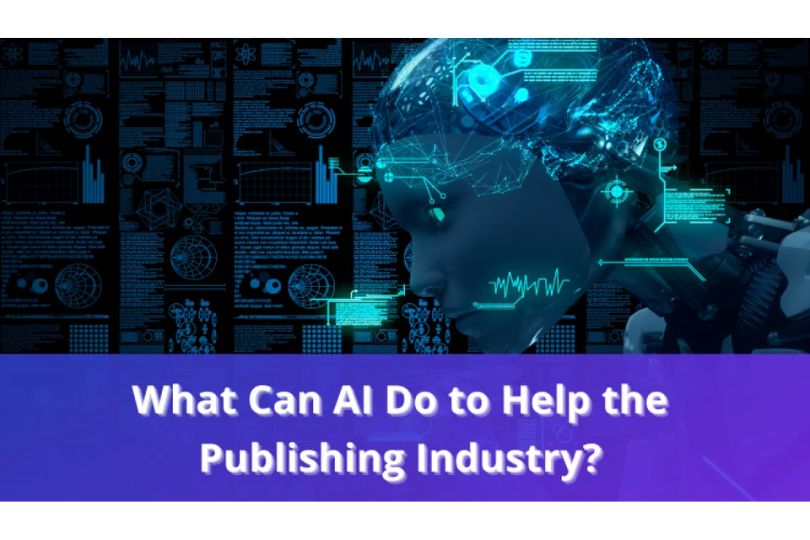The Future of Book Publishing: Embracing AI for Personalized and Efficient Reading Experience
In the era of AI, personalization is yet another crucial component of the future of book publishing. With the development of increasingly complex algorithms, books tailored to particular readers' preferences may be suggested.on Jun 05, 2023

As artificial intelligence (AI) continues to permeate the sector, the future of book publishing is experiencing a huge upheaval. The way books are written, edited and promoted is changing as a result of the rapid breakthroughs in technology. The publishing sector is well-positioned to take advantage of these developments to provide readers with a more effective and customized experience.
The possibility for automated content development is one of AI's most important effects on book publication. AI-driven algorithms can now process enormous volumes of data and produce coherent text depending on certain inputs. News articles, poetry, and even short tales have all been produced with this technique.
It is not implausible that these algorithms, as they advance, may eventually be utilized to generate complete novels or non-fiction volumes. Publishers would benefit from time and budget savings, and new information-sharing and storytelling avenues would be made possible.
However, worries concerning the place of human authors and the caliber of the produced works are raised by the concept of AI-generated material.
While AI can unquestionably write content that is intelligible and grammatically accurate, it could lack the complexity, originality, and emotional range that are unique to the human experience. A situation where AI and human authors collaborate to produce material is more likely to overcome this problem.
Artificial intelligence (AI) might be used to produce concepts, narrative outlines, or even full draughts that human authors could then polish and improve using their own viewpoints and writing styles.
The editing process is another area where AI is starting to show up. Text may now be grammatical, syntax, and even style-analyzed using AI-powered tools, which provide immediate feedback and ideas for improvement. This can facilitate editing and provide a higher-quality final output for authors and editors. AI may also be used to analyze consumer patterns and preferences, giving publishers more information they can use to decide which books to buy and how best to advertise them.
In the era of AI, personalization is yet another crucial component of the future of book publishing. With the development of increasingly complex algorithms, books tailored to particular readers' preferences may be suggested. This can make it easier for publishers and authors to focus their marketing campaigns and guarantee that consumers are exposed to books they are more likely to like and buy.
AI may potentially influence the reading process itself. For instance, AI-powered e-readers might modify a book's typeface, style, and even content depending on the preferences and reading habits of the user. This could result in a more engaging and delightful reading experience, boosting interest in books and other written content.
Although the future of book publishing in the AI era is quite promising, many obstacles remain to overcome. As the industry adopts these new technologies, copyright, authorship, and the possible loss of human creativity and expression must be carefully evaluated. However, the publishing sector can use the potential of artificial intelligence to improve efficiency, personalization, and engagement for readers by striking the appropriate balance between human input and AI-powered solutions.
In conclusion, the world of book publishing in the AI era is one that is interesting and quickly developing.
The industry must change and adopt these advances as technology develops in order to remain relevant and competitive. Publishers can give readers a more effective and interesting experience by using AI in areas like content development, editing, marketing, and customization. To guarantee that the distinctive features of books written by humans remain intact, it is vital to achieve the proper balance between human creativity and AI-powered technologies. The future of book publishing in the age of AI holds great promise for both the business and its readers with careful thought and partnership.

.jpg)
.jpg)
.jpg)
.jpg)
.jpg)

.jpg)
.jpg)
.jpg)
.jpg)
.jpg)


_(1).jpg)
.jpg)











Sorry! No comment found for this post.